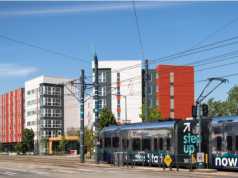City Releases Analysis and Online Dashboard for Understanding Building Energy Use
SEATTLE – September 11, 2015 – (RealEstateRama) — Today, the City of Seattle released two reports that track the energy performance and efficiency of public and private-sector buildings, as well as a new online tool that allows building owners to compare the efficiency of their facilities with local and national benchmarks.
Demonstrating its own commitment to energy efficiency, the City of Seattle has released the third year of municipal building energy performance. The report, “Seattle Municipal Buildings 2013 – 2014 Energy Performance Report,” lists the annual energy use per square foot of all City-owned buildings 10,000 square feet or larger and smaller public facilities such as libraries.
“Benchmarking is helping guide our efforts to manage and reduce the City’s energy use,” said Mayor Ed Murray. “We have learned that saving energy requires ongoing oversight and dedicated effort. The City will continue to invest in the energy efficiency of our facilities.”
The City’s 2014 municipal benchmarking results show that, adjusted for weather, 70% of City buildings had reduced energy use, but those reductions were offset by increased use in the other 30%, resulting in no net change in overall energy use.
The results highlight the need to consistently monitor and improve building operations and show that focused efforts to improve efficiency drives better energy performance. For example:
Energy efficiency efforts at the Airport Way complex yielded a combined 8.9% energy savings from 2013 to 2014, saving nearly $21,000 per year.
Community Center upgrades resulted in a combined 7.4% energy savings from 2013 to 2014 saving nearly $15,000 per year.
To further spur private building owners to reduce energy waste and increase building efficiency, the City is releasing a free online tool today—the Seattle Energy Benchmarking Dashboard—where owners can compare their building’s energy performance to similar buildings in Seattle.
Seattle’s report on private-sector buildings, “Building Energy Benchmarking Analysis Report 2013,” includes key findings from an analysis of 281 million square feet of Seattle’s largest buildings required to annually report energy performance (buildings 20,000 square feet and larger). Seattle continues to raise the bar nationally, with 99% of required building owners now measuring their energy use and understanding their energy performance relative to similar buildings.
“While Seattle has many energy efficient buildings, all owners can benefit from monitoring and tracking energy use,” said Councilmember Mike O’Brien. “I’m looking forward to working with the Office of Sustainability & Environment and community stakeholders to continue to drive energy efficiency improvements throughout our city so all owners and tenants realize energy savings, reduced costs and fewer carbon emissions.”
Preliminary analysis suggests that the overall year-to-year building energy performance of all buildings in Seattle is stable or trending positively, with a decrease of .6% in total energy use from 2012 to 2013. Many buildings still have significant room for improvement, however. For example, while 43% of Seattle buildings with an ENERGY STAR score are performing at a good to excellent level, 57% are performing only at a fair to poor level.
According to the analysis, buildings with high energy use could save money merely by reducing to about average consumption. The study estimated that a high-energy use medical office building could save about $31,600 annually, just by improving to the Seattle median energy use for medical office buildings. Similar savings scenarios were also found in other sectors like high-rise multifamily buildings and supermarkets. In addition to big savings for owners and tenants, efficiency improvements in commercial buildings boost the state’s economy, adding about $216 million a year and creating 3,800 jobs, according to a recent EcoNorthwest study.
To further energy efficiency action in the building sector, the Office of Sustainability & Environment is collaborating with City departments and the community to develop new incentives, programs and requirements that will help building owners achieve the energy savings needed for Seattle to meet our climate goals. For more information, visit www.seattle.gov/nextGenEE.
CONTACT:
Sara Wysocki (206) 233-7014




